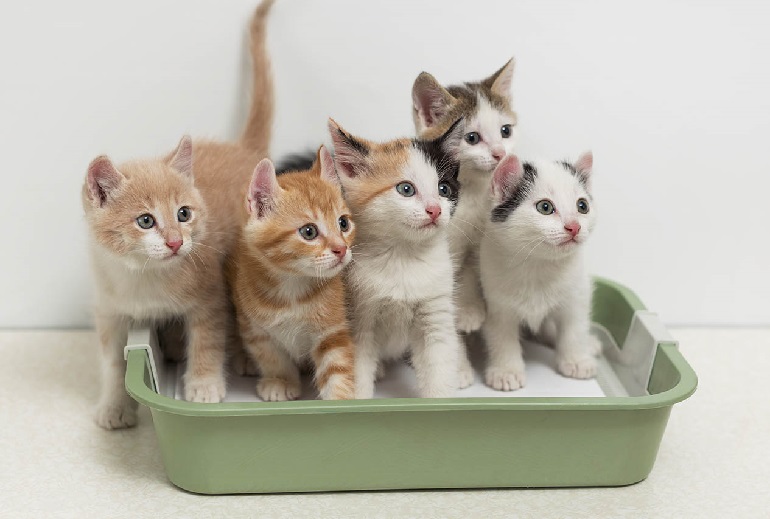Has watching wholesome cat videos online made you fall more in love with cats than ever before? And now you’re dealing with actual cat owner problems in life, like making sure your cats have a comfortable poop/pee session? We’ve got your back!
Cat litter is like the insurance policy you need to secure for your cat and, most importantly, your greater good. All cat owners use it for cats’ poop (crime scene), but the point is to decide how much cat litter to use?
How much litter is enough or how much is too little are the main concerns? Ideally, a good rule is that it should be just 2-3 inches in the cat’s litter box. But your feline friend will also inform you if you use more litter than needed. Keep reading to discover more in this article.
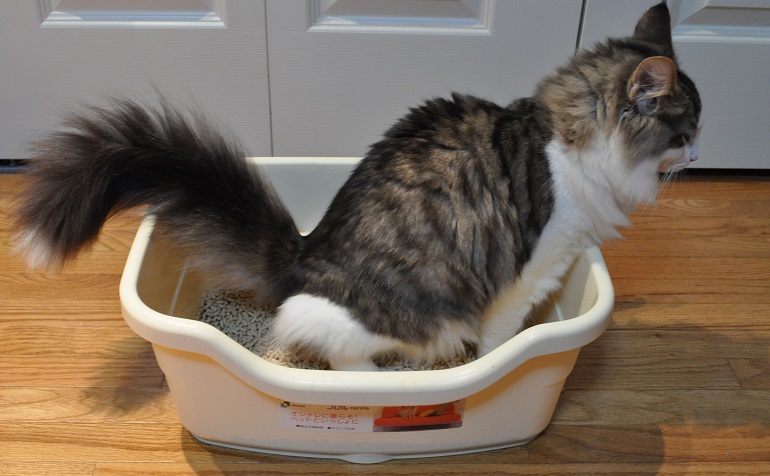
Signs That You Are Using Too Much Litter
Being a cat owner for the first time, it’s normal not to know much about cat care. However, noticing particular behavior patterns in your cat that is likely causing the litter box problems can be helpful. We have listed some behavior signs indicating you’re using too much litter.
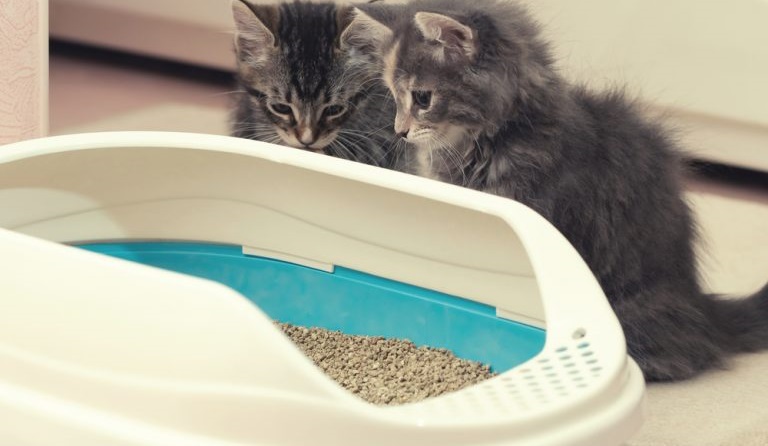
Your Cat Slips and Slides in the Litter Boxes
Cats become uneasy and restless using the litter box when there is too much litter. Using too much litter makes the box off balance, thus resulting in slipping and sliding in the litter box.
Your Cat Only Goes Halfway In
Cats are clean freaks. If your cat’s litter box has too much litter, the dump might end up hiding from your eyes but not your cat. And when the litter box is not clean, it makes the problem worse. There’s a high chance of your cat going halfway in or pooping outside the cat’s box.
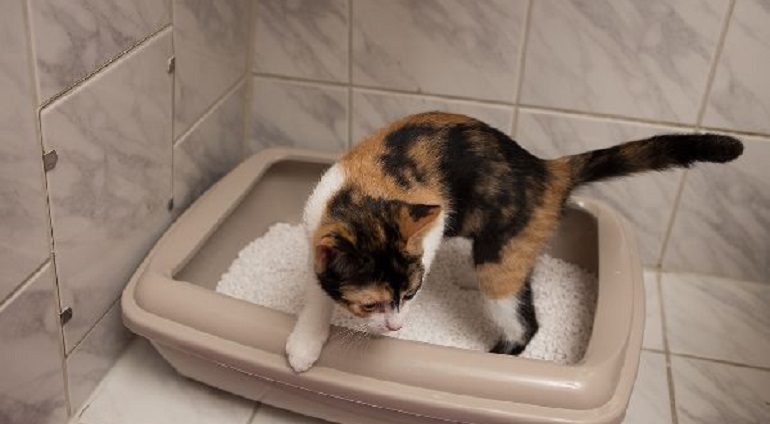
Discomfort with litter box liners can also contribute to this. So if you want to see your cat happy, ensure the litter box is cleaned often, old litter is replaced, and you are not using too much cat litter.
Your Cat Flings Litter Outside the Box
Cats instinctively like to hide the evidence ( their pee/poo)completely, vanishing the crime scene from existence. And when there is too much litter in the litter box, it results in your cat digging excessively, thus creating a grave hole in the litter dust for their embarrassing wrongs.
Thus, seeing your cat flinging litter outside the box might hint at too much litter to use.
How Much Cat Litter To Use in a Traditional Scooping Litter Box
Remember that feeling you have when a toilet flush fails, especially when you’re at someone else’s house? These feline species experience the same emotions when given too few litter levels. It’s crucial to choose the right amount of litter!
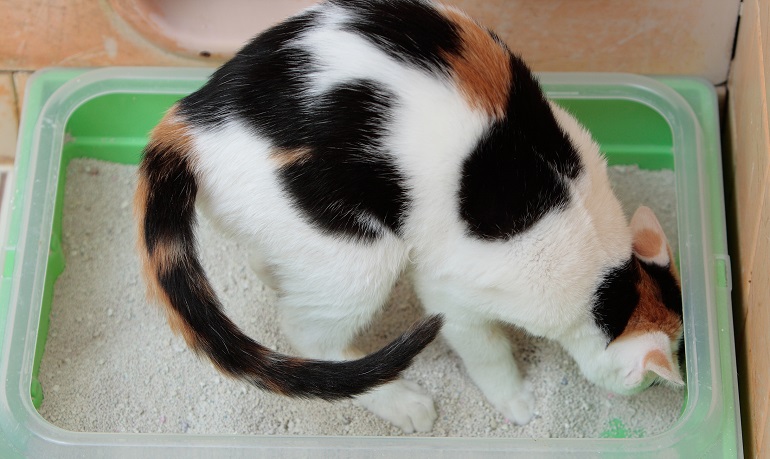
Many cats like 2-3 inches of litter in the box. However, the preferences may vary with a cat’s love to dig and find a treasure from their poo-filled litter box. In that case, add a little more litter and make it 3-4 inches. You have no choice; you need to surrender to the needs and likes of the mighty creature, the cat.
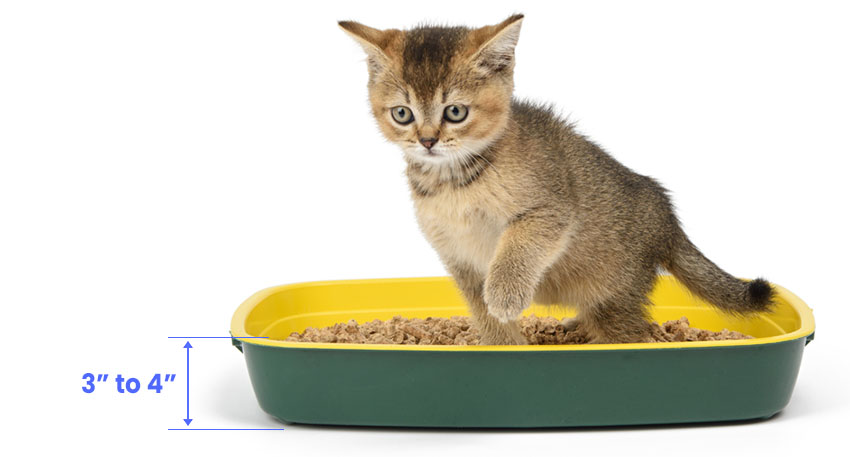
How Much Cat Litter To Use in a Litter-Robot
Litter-Robot is an automatic self-cleaning litter box that offers convenience to cat owners. No need to fill too much cat litter in the robot’s globe; filling it with raised litter line is enough litter. How much litter exactly will it be? Well, approximately 8-10 pounds of litter.
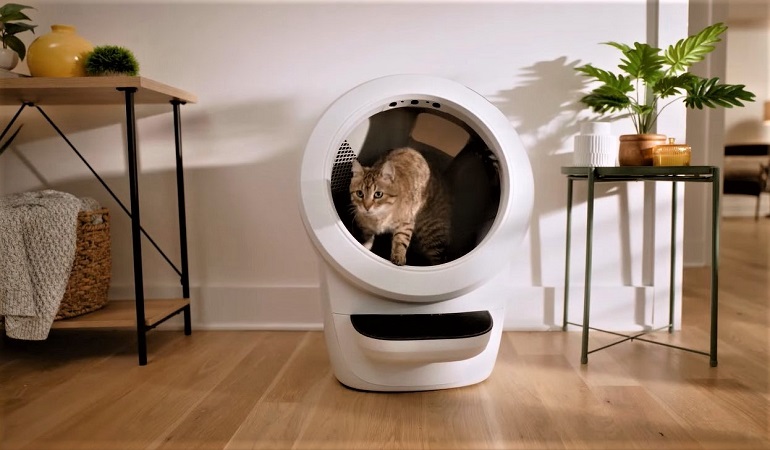
What Kind of Issues Can Occur With Improper Use of Cat Litter?
Cat litter, when misused, can smell and cause serious complications. If you don’t use the more absorbing litter or don’t clean litter often, or do nothing to control odor, your cat avoiding the litter box is bound to happen.
Litter Box Aversion
How much cat litter you use and how often you clean it determines the preference of your cat for the litter box
Too much cat litter, less litter, shallow litter boxes, odors, and uncomfortable litter liners; are all factors that lead to aversion, making your cat not wanna go to the bathroom.
Type of Litter/Cat’s Litter Preferences
The type of litter you use can also contribute to litter box problems. For example, using clumping litter in the box offers easy scooping, but your cat might not like the feel of it on its feet. Pure clay litter is fine, but it’s heavyweight, and cleanings can be challenging to maintain.

Sand is one of the most common household litter options. It is very absorbent, has fine granules, and controls odors and smells. However, Silica litter is considered the safest litter form for cats. Thanks to its super-absorbant granules, it soaks in all the urine and dehydrates the feces preventing any growth from sustaining deep in the litter box.
Thus, preventing kidney problems and UTIs in cats. Apart from that, silica litter is the least toxic litter, biodegradable; disposing of it is not as wasteful.
Also, when the cat’s litter you use is too dusty or too sticky litter,it can result in aversion. They like scoopable, soft, low-dust litter and unscented litter. Make sure to keep the litter box in a quiet place where its privacy is ensured. They like doing their business alone; that’s their nature.
What Is the Right Amount of Litter?

Generally, a cat likes 2 to 3 inches of soft-scoop able litter, preferably odorless. Your cute little fellow cat will show behaviors hinting if the level of litter in the box is too much or too little. Make sure to notice the symptoms.
Conclusion
Another reason that often goes unchecked is the stress levels of your cat. The strain on the mental and emotional well-being also leads to worse litter box problems.
It is important to keep your litter box clean and replace used litter on a regular basis. It’s not easy being a pet owner, but it is all worth it to be able to snuggle with them at the end of the day.
Hopefully, this article helped you determine how much cat litter is too much cat litter.


